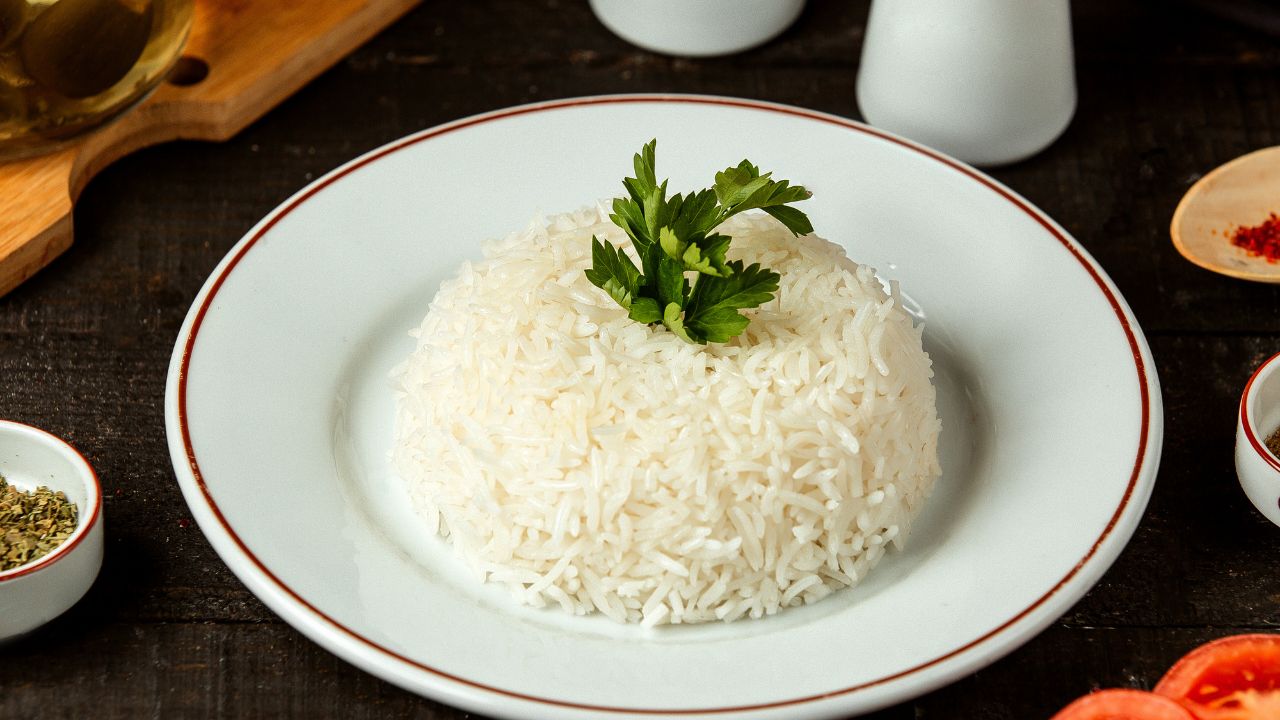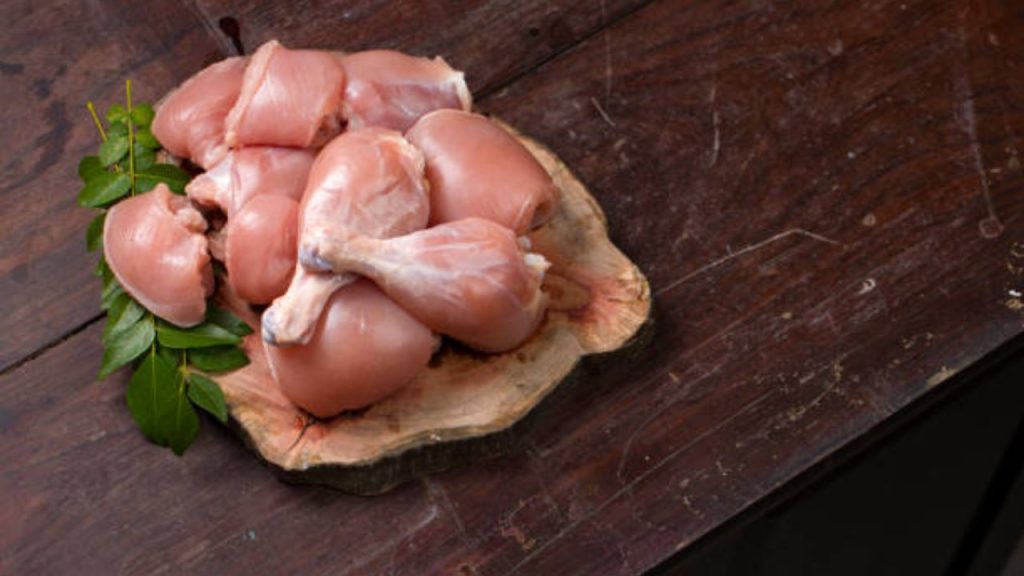Best Cat Food for Sensitive Stomach Gentle & Effective

Does your cat often seem uncomfortable after eating, or do you notice frequent digestive issues? If so, finding the best cat food for a sensitive stomach can make all the difference.
Many cat owners face the challenge of selecting the right food for their feline friends with delicate digestion. The good news is that the best cat food for a sensitive stomach is designed to soothe and nourish, turning mealtime into a happy moment for both you and your furry companion.
Imagine your cat eagerly awaiting each meal, free from digestive discomfort. Keep reading to discover the best cat food for sensitive stomach options that can help your cat enjoy every bite without worries.
Common Causes Of Sensitive Stomachs
Cats can have delicate tummies. This can cause them discomfort. Finding the right food is important. It helps keep them healthy and happy. Many things can upset a cat’s stomach. Understanding these causes helps you choose the best food. Let’s explore the common reasons behind sensitive stomachs in cats.
Food Allergies
Some cats are allergic to certain foods. This can upset their stomach. Common allergens include dairy, beef, and fish. Watching your cat’s reaction to these foods is crucial. If allergies occur, switch to hypoallergenic options.
Intolerances
Cats can have intolerances to certain ingredients. This is different from allergies. Intolerances can cause discomfort and stomach problems. Ingredients like gluten and grains are often culprits. Choosing grain-free food might help.
Overeating
Overeating can lead to stomach issues in cats. Eating too much food at once can cause indigestion. It’s important to feed cats in smaller, regular meals. This helps their digestive system work better.
Sudden Diet Changes
Changing a cat’s diet too quickly can lead to digestive problems. Cats need time to adjust to new foods. Gradually mixing new food with the old helps. This method prevents stomach upset.
Stress
Stress can also affect a cat’s stomach. Changes in the environment or routine can cause stress. Providing a calm and stable environment is crucial. A relaxed cat is a healthy cat.

Signs Your Cat Has A Sensitive Stomach
Cats often hide their discomfort. Sensitive stomachs are common among them. Recognizing the signs can help you choose the right food. Diet plays a key role in managing their symptoms. Cats with sensitive stomachs might show certain behaviors. Understanding these signs can aid in finding the best food options.
Frequent Vomiting
Vomiting is a major sign of a sensitive stomach. Cats might vomit after meals. This can be due to food intolerance. Different ingredients can trigger this reaction. Monitoring the frequency of vomiting is essential. It helps in identifying food-related issues. If your cat vomits often, consider a diet change.
Diarrhea
Loose stools can indicate a sensitive stomach. Diarrhea is often linked to food intolerance. Cats may experience discomfort during this time. Consistency and frequency of stools matter. Keeping an eye on these can help in managing symptoms. Dietary adjustments might be necessary.
Lack Of Appetite
Reduced appetite is another sign. Cats might avoid food due to stomach discomfort. This can lead to weight loss. Observing eating habits is crucial. Changes in appetite can suggest a need for dietary change. A suitable cat food can encourage eating.
Weight Loss
Unexpected weight loss can be alarming. Cats might lose weight due to sensitive stomach issues. This might be linked to poor nutrient absorption. Regular weight checks can help track any changes. Finding the right food can help stabilize their weight.
Excessive Lethargy
Lethargy is another symptom. Cats may become inactive due to discomfort. This can affect their overall health. Energy levels should be monitored. If your cat seems more tired than usual, consider their diet. A balanced diet can improve their energy.
Key Ingredients For Sensitive Stomachs
Cats with sensitive stomachs need special care. Choosing the right food is crucial for their health. Sensitive stomachs can cause discomfort and other issues for your feline friend. Selecting the best cat food is essential. It helps them digest easily and stay healthy. This guide explores key ingredients needed for sensitive stomachs. Understanding what to look for in cat food can make a big difference.
Limited Ingredient Diets
Limited ingredient diets are helpful for cats with sensitive stomachs. These diets contain fewer ingredients. This makes it easier to identify allergens and avoid them. Simple formulas often mean less irritation for your cat. They focus on essential nutrients only. Consider these features when choosing a limited-ingredient diet:
- Few additives – Reducing additives lowers the risk of stomach upset.
- No artificial colors or flavors – These can cause allergic reactions.
- Single protein source – Helps in identifying specific allergies.
Many brands offer limited-ingredient diets. Check labels carefully. Look for natural ingredients that support your cat’s health. These diets are often recommended by vets for sensitive stomachs.
High-quality Proteins
Protein is crucial for a cat’s diet. High-quality proteins ensure proper nutrition. They are easier to digest and less likely to upset the stomach. Cats need proteins for energy and muscle maintenance. Good sources include chicken, turkey, and fish. These are gentle on the stomach. Consider these factors for high-quality proteins:
- Lean meats – Fatty meats can cause stomach issues.
- Fresh sources – Ensure freshness to avoid spoilage and irritation.
- Proper cooking – Well-cooked proteins are easier to digest.
Always check for protein quality on the label. Avoid by-products and fillers that can cause allergies. High-quality proteins contribute to a healthy and happy cat.

Digestive Aids
Digestive aids can be helpful for cats with sensitive stomachs. They assist in smooth digestion. Probiotics are beneficial bacteria that promote gut health. They help balance the digestive system. Fiber is another important aid. It supports digestion and prevents constipation. Consider these digestive aids:
- Probiotics – These improve overall gut health.
- Fiber sources – Helps in regular bowel movements.
- Prebiotics – Supports beneficial bacteria in the gut.
Digestive aids are often included in specialized cat foods. Look for natural sources in the ingredients list. They can ease digestion and improve your cat’s well-being.
Top Cat Food Brands For Sensitive Stomachs
Cats are wonderful companions. But some can have sensitive stomachs. Choosing the right food is crucial. It helps avoid digestive issues and promotes overall health. Sensitive stomachs can cause vomiting or diarrhea. Selecting the best food can make all the difference. This article will explore the top cat food brands that cater to sensitive stomachs. Each brand offers unique features and benefits. Let’s dive into the options.
Brand A: Features And Benefits
Brand A is known for its high-quality ingredients. It provides a balanced diet for cats with sensitive stomachs. Here are some features and benefits:
- Grain-free formula: Reduces the risk of allergies.
- Easily digestible proteins: Chicken or fish as the main ingredient.
- Added probiotics: Supports healthy digestion.
A table summarizing its nutritional content:
| Nutrient | Content |
|---|---|
| Protein | 30% |
| Fat | 15% |
| Fiber | 3% |
Brand A is a solid choice. It offers complete nutrition for sensitive cats. Your feline friend will feel better and more active.
Brand B: Features And Benefits
Brand B focuses on natural ingredients. It’s perfect for cats with sensitive stomachs. Here are its key features:
- No artificial additives: Keeps your cat’s diet pure.
- Limited ingredient recipes: Only essential nutrients included.
- Rich in omega-3 fatty acids: Promotes skin and coat health.
Brand B also offers a variety of flavors. Cats enjoy the taste and texture. The brand is highly rated by pet owners. They report improved digestion and overall well-being. Brand B is an excellent choice for your cat’s health.
Brand C: Features And Benefits
Brand C specializes in veterinarian-approved formulas. It’s ideal for sensitive stomachs. Key benefits include:
- Hydrolyzed proteins: Reduce allergic reactions.
- Prebiotics and probiotics blend: Enhances gut health.
- Balanced nutrient profile: Meets all dietary needs.
Brand C is trusted by many vets. It provides optimal digestion support. Cats with sensitive stomachs thrive on this diet. The brand ensures quality control. Ingredients are sourced from reliable suppliers. Consider Brand C for a happy, healthy cat.
Homemade Cat Food Recipes
Cats with sensitive stomachs often need special care, especially when it comes to their diet. Finding the best cat food for sensitive stomachs can be challenging. Homemade cat food recipes offer an excellent solution, allowing owners to control ingredients and ensure freshness. These recipes can be a great way to provide nutrition while avoiding common allergens. The following recipes are simple and effective for cats with sensitive stomachs.
Simple Recipe 1
Creating homemade cat food can be easy and rewarding. This first recipe uses chicken and rice, which are gentle on a cat’s stomach. Start by cooking 2 cups of chicken breast without any seasoning. Shred the chicken into small pieces once cooked. Next, prepare 1 cup of white rice. Cook until tender, then mix with the chicken. Add 1 tablespoon of olive oil for healthy fats. Stir well to combine the ingredients.
Why this recipe works:
- Chicken is a source of lean protein.
- Rice is gentle on the stomach and easy to digest.
- Olive oil adds essential fats.
This recipe can be stored in the refrigerator for up to three days. Always ensure the food is fresh and at room temperature before serving.

Simple Recipe 2
This second recipe features fish and sweet potato. Start by cooking 2 cups of white fish, such as cod or haddock. Ensure the fish is fully cooked and remove any bones. Mash 1 cup of cooked sweet potato until smooth. Combine the fish and sweet potato in a bowl. Add 1 teaspoon of flaxseed oil for added omega-3 fatty acids. Mix thoroughly to create a uniform consistency.
Benefits of this recipe:
- Fish provides high-quality protein and omega-3s.
- Sweet potatoes are rich in fiber and gentle on digestion.
- Flaxseed oil supports healthy skin and coat.
This meal can be refrigerated for up to three days. Always serve it fresh to maintain nutritional value.
Transitioning To New Food
Cats often have sensitive stomachs, making meal changes tricky. Choosing the right food can help improve digestion and overall health. This guide explores the best options and offers advice on transitioning smoothly. Owners can make informed choices to keep their furry friends happy and healthy.
Understanding Sensitive Stomachs
Many cats suffer from digestive issues. Symptoms include vomiting, diarrhea, and loss of appetite. Identifying the cause is crucial. Often, food allergies or intolerances are to blame. Selecting hypoallergenic or easily digestible foods can alleviate these problems.
Choosing The Right Ingredients
The best cat food for sensitive stomachs should contain high-quality protein. Look for options with chicken, turkey, or fish as primary ingredients. Avoid fillers like corn, soy, and wheat. These can worsen digestive issues.
Incorporating fiber-rich ingredients helps improve digestion. Consider foods with pumpkin, sweet potato, or pea fiber. These support healthy gut function.

Gradual Transition Process
Switching your cat’s food needs a careful approach. Start by mixing a small amount of the new food with the old. Gradually increase the new food over 7 to 10 days. This prevents digestive upset and allows the cat to adjust.
| Day | Old Food (%) | New Food (%) |
|---|---|---|
| 1-3 | 75 | 25 |
| 4-6 | 50 | 50 |
| 7-9 | 25 | 75 |
| 10 | 0 | 100 |
Monitoring Your Cat’s Reaction
Observe your cat’s behavior and stool during the transition. Signs of improvement include normal stools and increased appetite. If issues persist, consult a vet. They can recommend specific foods or adjustments.
Benefits Of Sensitive Stomach Cat Food
Specialized cat foods offer digestive support and can improve coat health. These foods often contain omega fatty acids, which enhance skin and fur quality. They also provide balanced nutrition for overall wellness.
Consulting Your Veterinarian
Cats with sensitive stomachs need special care. Finding the right food is vital. It keeps them healthy and happy. Some foods can upset their stomachs. Others can help them thrive. Choosing the best option can be tricky. Consulting a veterinarian is a smart step. They know what’s best for your furry friend.
Symptoms Of A Sensitive Stomach
Cats with sensitive stomachs show clear symptoms. Vomiting after meals is common. Diarrhea can also occur frequently. Loss of appetite is another sign. Some cats might have weight loss or lethargy. Bloated stomachs or excessive gas can also indicate issues. If you notice these symptoms, talk to a vet.
Importance Of A Proper Diet
A proper diet keeps your cat healthy. Balanced nutrition is essential. It helps in maintaining weight. Improves digestion and boosts energy. The right food can reduce stomach issues. Some foods are designed for sensitive stomachs. They have easily digestible ingredients. Always choose food that suits your cat’s needs.
Recommended Cat Foods
| Brand | Main Benefit |
|---|---|
| Royal Canin | Promotes healthy digestion |
| Purina Pro Plan | Supports immune health |
| Hill’s Science Diet | Improves skin and coat |
| Blue Buffalo | Reduces stomach sensitivity |
Tips For Feeding Cats With Sensitive Stomachs
- Feed them small meals throughout the day.
- Choose high-quality cat food.
- Avoid foods with artificial additives.
- Introduce new foods gradually.
- Provide fresh water at all times.
Frequently Asked Questions: Best Cat Food for Sensitive Stomach?
What Makes Cat Food Suitable For Sensitive Stomachs?
Sensitive stomach cat food is gentle and easy to digest. It often contains limited ingredients.
How Can I Tell If My Cat Has A Sensitive Stomach?
Look for signs like vomiting, diarrhea, or loss of appetite. Consult a vet for a diagnosis.
Are Grain-Free Diets Better For Cats With Sensitive Stomachs?
Some cats benefit from grain-free diets. They reduce potential allergens. Always check with your vet first.
Which Ingredients Should I Avoid For Sensitive Cats?
Avoid artificial additives and preservatives. They can irritate a cat’s stomach. Opt for natural ingredients.
Can Wet Cat Food Help With Sensitive Stomachs?
Wet food is often easier to digest. It can be gentler on sensitive stomachs. Provide balanced nutrition.
How Often Should I Feed A Cat With A Sensitive Stomach?
Small, frequent meals are best. They prevent overloading the stomach. Monitor your cat’s response closely.
Conclusion
Finding the right cat food matters for sensitive stomachs. Your feline friend needs gentle, digestible ingredients. Choices like limited-ingredient or grain-free formulas can help. Pay attention to protein sources and additives. Consider their preferences, too. Cats can be picky eaters! Consult your vet for personalized advice.
They’ll guide you through dietary changes. Always introduce new foods gradually. Watch for improvements in digestion and comfort. Your kitty’s health deserves careful attention. Happy, healthy cats bring joy to your home. Keep their diet simple and nutritious. Your cat will thank you with purrs and cuddles.







